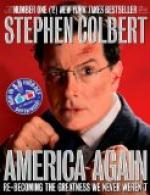She certainly excelled in “rounding-up goat,” riding the old Billy like a race-horse; and with Rosy filling the position of housemaid to perfection, Jimmy’s Nellie proving invaluable in her vigorous treatment of the rejected and the wood-heap gossip filling in odd times, life so far as it was dependent on black folk—was running on oiled wheels: the house was clean and orderly, the garden flourished; and as the melons grew apace, throwing out secondary leaves in defiance of Cheon’s prophecies, Billy Muck grew more and more enthusiastic, and, usurping the position of Chairman of the Directors, he inspired the shareholders with so much zeal that the prophecies were almost fulfilled through a surfeit of watering. But Cheon’s attitude towards the water-melons did not change, although he had begun to look with favour upon mail-matter and station books, finding in them a power that could keep the Maluka at the homestead.
For two full weeks after our return from the drovers’ camp our life was exactly as Cheon would have it—peaceful and regular, with an occasional single day “out-bush”; and when the Maluka in his leisure began to fulfil his long-standing promise of a defence around my garden, Cheon expressed himself well-pleased with his reform.
But even the demands of station books and accumulated mail-matter can be satisfied in time, and Dan reporting that he was “getting going with the bullocks,” Cheon found his approval had been premature; for, to his dismay, the Maluka abandoned the fence, and began preparations for a trip “bush.” “Surely the missus was not going?” he said; and next day we left him at the homestead, a lonely figure, seated on an overturned bucket, disconsolate and fearing the worst.
Cheon often favoured an upside-down bucket for a seat. Nothing more uncomfortable for a fat man can be imagined, yet Cheon sat on his rickety perch, for the most part chuckling and happy. Perhaps, like Mark Tapley, he felt it a “credit being jolly” under such circumstances.
By way of contrast, we found Dan and Jack optimistic and happy, with some good bullocks in hand, a record branding to report for the fortnight’s work, and a drover in camp of such a delightful turn of mind that he was inclined to look upon every bullock mustered as “just the thing.” He was easily disposed of, and within a week we were back at the homestead.
We had left Cheon sad and disconsolate, but he met us, filled with fury, and holding a sack of something soft in his arms. “What’s ’er matter?” he spluttered, almost choking with rage. “Me savey grow cabbage “; and he flung the sack at our feet as we stood in the homestead thoroughfare staring at him in wonder. “Paper yabber!” he added curtly, passing a letter to the Maluka.
It was a kindly, courteous letter from our Eastern neighbour, who had “ventured to send a cabbage, remembering the homestead garden did not get on too well.” (His visits had been in Sam’s day). “How kind!” we said, and not understanding Cheon’s wrath, the Maluka opened the bag, and passed two fine cabbages to him after duly admiring them.




